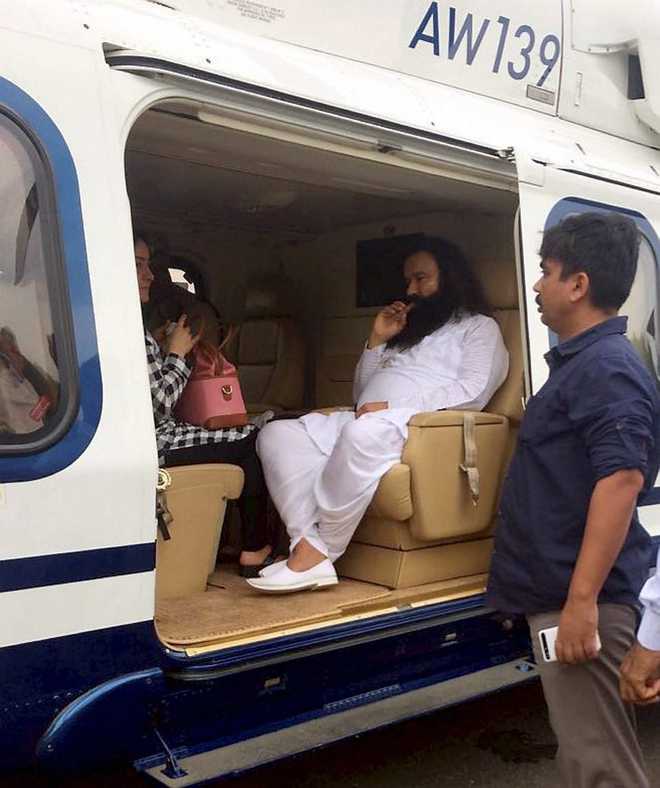
Ungodly acts: Law caught up with the godman last year after three decades.
Sushil Manav
Gurmeet Ram Rahim Singh Insan was a man who conjured a perfect spiritual vision, just the right blend of religion, politics, welfare and entertainment. It was sufficient to lure people to his ashram, Dera Sacha Sauda at Sirsa (Haryana) that he had inherited from Shah Satnam Singh at the age of 23 in 1990. He used this beguiling mix to acquire immense wealth, grab land and to satisfy his unbridled lust. With the backing of political bosses of the times, for nearly three decades Ram Rahim succeeded in silencing all voices that dared to speak about his exploits till the law finally caught up with him last year. A special CBI court convicted him for rape of two sadhvis at his dera.
Journalist Anurag Tripathi's book is a painstaking investigation into the criminal activities and the empire set up on these misdeeds by the man his followers revered as God and addressed as Pitaji. Operation Jhootha Sauda, as the investigation by Tripathi and his Tehelka colleagues was called, reveals the gory details of criminal activities alleged to have happened inside the dera under Ram Rahim.
He had made the dera a hub of sexual exploitation of women devotees and forced castrations of male followers. There were reports of his private militia enforcing his evil deeds, illegal trade in arms and opium and land grab on an unfathomable scale. The book clearly highlights how religion and politics worked hand in hand for the exploitation of the gullible.
The engrossing book reads like the script of a horror movie that instils a strange fear of what may happen next. Tripathi's narrative has been able to invoke the shock, the disbelief and the frustration at the unchecked growth of this empire of evil that flourished for three decades. All along, Tripathi just presents the facts for the reader to form his own opinion rather than giving an analysis of events or sermonising.
The book begins with an anonymous letter of a sadhvi that for the first time had brought in open to the outside world the horrific things happening inside the dera's four walls. What follows is a narrative of the lonely battle fought by two rape survivors and their families, a castrated sadhu and Anshul, the elder son of slain editor of the Poora Sach newspaper, Ram Chander Chhatrapati, who published the letter.
This book is as much about the grit of these victims of Ram Rahim's malevolence who fought for justice against a powerful person who has the authorities on his beck and call as it is about the hardships and perils involved in investigating crimes committed by the high and mighty.
Having reported for The Tribune from Sirsa for nearly eight years at a time when Dera's face-off with the Sikh community was at its peak, it is understandable why the author says that local media not only chose to ignore Ram Rahim's wrongdoings, but also failed their own fellow journalist Chhatrapati, whose son Anshul fought for 15 years to get justice for his father.
Quoting a senior former CBI officer, the author exposes three young MPs, two from Haryana and one from Rajasthan, who allegedly tried to influence the CBI investigation and even tried to convince the then PM Manmohan Singh to drop the investigation against Ram Rahim.
The readers should easily be able to guess the names of these MPs though the author has preferred to withhold their identity.It is another matter that the former PM gave the CBI chief an immediate go-ahead the moment he read the rape survivors' statement.
Barring a few small errors like mentioning Fatehabad district as Fatehgarh and little dramatisation of certain events, Tripathi's work is an exceptionally valuable essay on what we are up against in an era of ever increasing cult of deras and self-styled gurus who tend to use their credulous followers as a shield while building their evil empires of wealth, power and crime where our law enforcing agencies fear to tread.



























